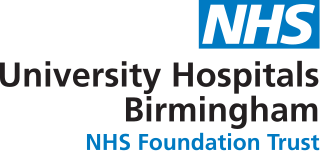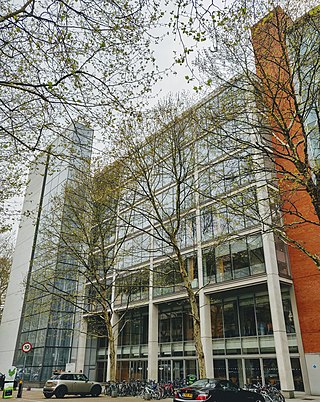Related Research Articles

Marie Curie is a registered charitable organisation in the United Kingdom which provides hospice care and support for anyone with an illness they are likely to die from, and those close to them, and campaigns for better support for dying people. It was established in 1948, the same year as the National Health Service (NHS).
A poison control center is a medical service that is able to provide immediate, free, and expert treatment advice and assistance over the telephone in case of exposure to poisonous or hazardous substances. Poison control centers answer questions about potential poisons in addition to providing treatment management advice about household products, medicines, pesticides, plants, bites and stings, food poisoning, and fumes. In the US, more than 72% of poison exposure cases are managed by phone, greatly reducing the need for costly emergency department and doctor visits.
The New Year Honours 2006 in some Commonwealth realms were announced in the United Kingdom, New Zealand, Grenada, the Solomon Islands, Tuvalu, Saint Vincent and the Grenadines, Belize, and Saint Christopher and Nevis to celebrate the year past and mark the beginning of 2006.

The University Hospitals Birmingham NHS Foundation Trust provides adult district general hospital services for Birmingham as well as specialist treatments for the West Midlands.
The New Year Honours 2008 for the Commonwealth realms were announced on 29 December 2007, to celebrate the year passed and mark the beginning of 2008.
The New Year Honours 2009 were announced on 31 December 2008 in the United Kingdom, New Zealand, Cook Islands, Barbados, Grenada, Saint Vincent and the Grenadines, Belize, Antigua and Barbuda, and Saint Christopher and Nevis, to celebrate the year past and mark the beginning of 2009.
The Birthday Honours 2005 for the Commonwealth realms were announced on 11 June 2005 to celebrate the Queen's Birthday of 2005. The recipients of honours are displayed here as they were styled before their new honour, and arranged first by the country whose ministers advised the Queen on the appointments, then by honour, with classes and then divisions as appropriate.

The Faculty of Medicine is the academic centre for medical and clinical research and teaching at Imperial College London. It contains the Imperial College School of Medicine, which is the college's undergraduate medical school.
The Birthday Honours 2011 for the Commonwealth realms were announced on 11 June 2011 in the United Kingdom, New Zealand, Barbados, Grenada, Papua New Guinea, Solomon Islands, Tuvalu, Saint Lucia, Antigua and Barbuda, and on 13 June 2011 in Australia to celebrate the occasion of the Queen's Official Birthday for 2011.
The Birthday Honours List 2012 was released on 16 June 2012 in the United Kingdom, on 11 June 2012 in Australia on 4 June 2012 in New Zealand, on 15 June 2012 in Antigua and Barbuda, Barbados, Grenada, Belize, Saint Lucia, Solomon Islands, and The Cook Islands. The Birthday Honours List was released during the height of the Diamond jubilee celebrations, and was therefore styled The Birthday and Diamond Jubilee Honours 2012 in New Zealand, while United Kingdom celebrated the jubilee with a separate list later that year.
The New Year Honours 2013 were appointments by some of the 16 Commonwealth realms to various orders and honours to recognise and reward good works by citizens of those countries. The New Year Honours are awarded as part of the New Year celebrations at the start of January.
The 2017 Queen's Birthday Honours were appointments by some of the 16 Commonwealth realms of Queen Elizabeth II to various orders and honours to reward and highlight good works by citizens of those countries. The Birthday Honours were awarded as part of the Queen's Official Birthday celebrations during the month of June. The Queen's Birthday Honours for the United Kingdom were announced on 16 June; the honours for New Zealand were announced on 5 June and for Australia on 12 June.
The 2018 Queen's Birthday Honours are appointments by some of the 16 Commonwealth realms of Queen Elizabeth II to various orders and honours to reward and highlight good works by citizens of those countries. The Birthday Honours are awarded as part of the Queen's Official Birthday celebrations during the month of June. The Queen's Birthday Honours for the United Kingdom were announced on 9 June; the honours for New Zealand were announced on 4 June and for Australia on 11 June.

Gosport War Memorial Hospital is a hospital in Gosport, Hampshire, England, part of the Southern Health NHS Foundation Trust.
The 2019 New Year Honours are appointments by some of the 16 Commonwealth realms to various orders and honours to recognise and reward good works by citizens of those countries. The New Year Honours are awarded as part of the New Year celebrations at the start of January and were officially announced in The London Gazette at 22:30 on 28 December 2018. Australia, an independent Realm, has a separate honours system and its first honours of the year, the 2019 Australia Day Honours, coincide with Australia Day on 26 January.
The 2020 New Year Honours are appointments by some of the 16 Commonwealth realms to various orders and honours to recognise and reward good works by citizens of those countries. The New Year Honours are awarded as part of the New Year celebrations at the start of January and were officially announced in The London Gazette on 27 December 2019. Australia, an independent Realm, has a separate honours system and its first honours of the year, the 2020 Australia Day Honours, coincide with Australia Day on 26 January.
COVID-19 hospitalsin the United Kingdom were temporary hospitals set up in the United Kingdom and overseas territories as part of the response to the COVID-19 pandemic.
The Queen's Birthday Honours for 2020 are appointments by some of the 16 Commonwealth realms of Queen Elizabeth II to various orders and honours to reward and highlight good works by citizens of those countries. The Birthday Honours are awarded as part of the Queen's Official Birthday celebrations during the month of June. The honours for New Zealand were announced on 1 June, and for Australia on 8 June.
The 2021 New Year Honours are appointments by some of the 16 Commonwealth realms to various orders and honours to recognise and reward good works by citizens of those countries. The New Year Honours are awarded as part of the New Year celebrations at the start of January and those for 2021 were announced on 30 December 2020.
References
- ↑ Roy Goulding
- ↑ Scottish Poisons Information Bureau
- ↑ Regional Drug and Therapeutics Centre
- ↑ Poisons Information Centre - Ireland
- ↑ Annual report
- ↑ "National Poisons Information Service commissoned [sic] by the Health Protection Agency". WhatDoTheyKnow.com. 23 October 2012. Retrieved 12 September 2024.